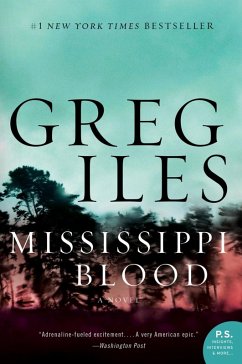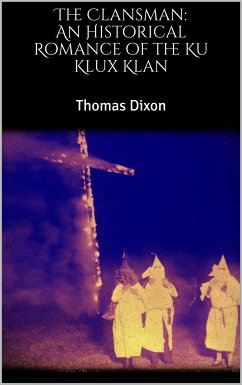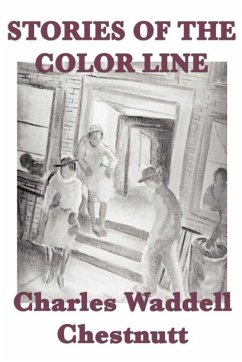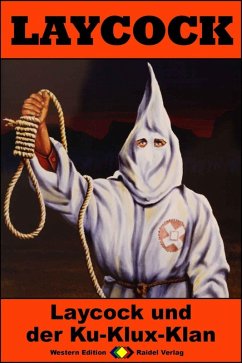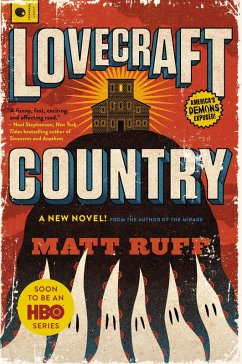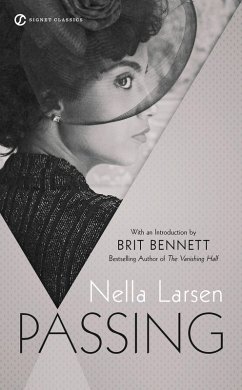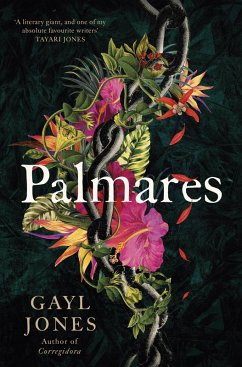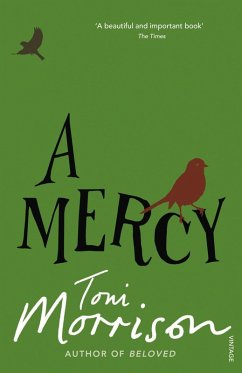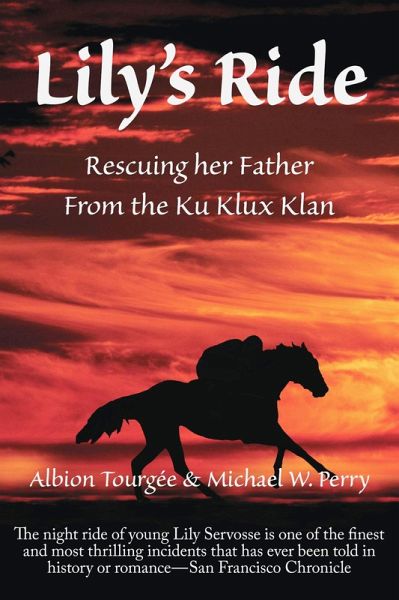
Lily's Ride: Saving her Father from the Ku Klux Klan (eBook, ePUB)

PAYBACK Punkte
0 °P sammeln!
Lily's Ride dramatizes the nation's first civil rights movement. Set in North Carolina just after the Civil War, it tells of those who bravely defied white supremacy and fought for racial equality. Comfort Servosse is a Union officer who has moved South to make a difference. John Walters is a poor white who wants his daughters to get a good education and has formed an alliance with recently freed slaves to establish honest government and good schools. Jerry Hunt is a black pastor who openly defies the Klan. At the heart of this story is Lily Servosse, an extraordinarily brave teenaged girl. Wa...
Lily's Ride dramatizes the nation's first civil rights movement. Set in North Carolina just after the Civil War, it tells of those who bravely defied white supremacy and fought for racial equality. Comfort Servosse is a Union officer who has moved South to make a difference. John Walters is a poor white who wants his daughters to get a good education and has formed an alliance with recently freed slaves to establish honest government and good schools. Jerry Hunt is a black pastor who openly defies the Klan. At the heart of this story is Lily Servosse, an extraordinarily brave teenaged girl. Warned that the Klan intends to kill her father that very night, she rides his thoroughbred stallion on the same roads over which a hundred Klan are traveling. The San Francisco Chronicle said: "The night ride of young Lily Servosse is one of the finest and most thrilling incidents that has ever been told in history or romance." This book is based on A Fool's Errand, a bestselling 1879 novel by Albion Tourgée. It was so influential, segregationists were still trying to counter its message over thirty years later with films such as The Birth of a Nation. Lily's Ride has been adapted for today's readers by removing chapters intended for a nineteenth-century audience and focusing on the key characters. A historical background has been added. Those who want to grasp why the Civil War ended so badly will find their answers here. The Yale Literary Review wrote that it, "gives information on a subject on which there has been a woeful lack of real knowledge... the actual state of Southern society in the period following the war." As a North Carolina judge, Albion Tourgée was an eyewitness to those events. He was also one of the nineteenth century's foremost champions of racial equality. As a lawyer, he argued against segregation in the U.S. Supreme Court decision, Plessy v. Ferguson (1896). Today we joke about Klansmen in their white sheets. This novel will take you back to an era when they terrified even the bravest. In fact, one soldier in this story warns, "I would rather charge up the Heights of Gettysburg again than be the object of a raid by that crowd." When Lily makes her bold ride, she must risk facing that terrifying crowd all alone on a lonely road late at night. Working on this book has taught me to appreciate my Hallmark ancestors-rebels against the rebellion. Two were murdered during the Civil War for defying what they called a "rich man's war, a poor man's fight." A third, my great-great grandfather Hopwood Hallmark, was murdered in 1874 during the final drive to establish white supremacy in the South by "ballots or bullets." Those who want understand the historic roots of racism will find this book, written by one of the bravest champions of racial equality, a must read and the added commentary helpful. It's also excellent for students in high schools and universities.
Dieser Download kann aus rechtlichen Gründen nur mit Rechnungsadresse in A, B, CY, CZ, D, DK, EW, E, FIN, F, GR, H, IRL, I, LT, L, LR, M, NL, PL, P, R, S, SLO, SK ausgeliefert werden.




